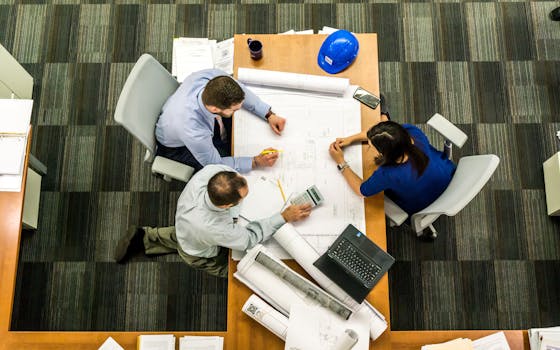Cultivating a Mindful Approach to Personal Organization
Over half of adults in the U.S. feel that disorganization causes stress and unease, according to data from the National Association of Professional Organizers. Interestingly, introducing a bit of mindfulness into routine organization can starkly reduce this figure and inspire an altogether calmer, more enjoyable way of living. Through mindful organization, professionals and homemakers alike can transform the chaos of clutter into the harmony of habit.

Mindfulness,the practice of maintaining a nonjudgmental state of complete awareness of one’s thoughts and surroundings,is not just for meditation or yoga studios. Applied to everyday activities, particularly personal organization, it becomes a compelling tool for enhancing satisfaction and productivity. By intentionality pairing mindfulness with personal organization, we achieve not only cleaner spaces but also clearer minds.
The Mindful Decluttering Steps
- Prioritize with Purpose: Before you start organizing anything, take a thoughtful pause. Reflect on what items in your space truly matter to you. This selective process isn’t just about finding what you love or need; it's about recognizing and reaffirming your values.
- Savor the Process: Often, organization feels like a race against the clock. Mindful organizing shifts this perspective: it encourages savoring each moment of the arranging process, whether you're sorting through papers or clothes. This change in tempo allows individuals to engage fully with the task at hand, turning a mundane activity into a therapeutic ritual.
- Sustainably Dispose: Being mindful also means considering how your decluttering impacts the outside world. Opt for donating over trashing wherever possible. Look for environmentally friendly ways to dispose of unwanted items.
This holistic approach goes beyond mere tidiness, cultivating habits that respect both personal mental space and our wider environment.
Why Organization Requires More than Minimalism
The trend towards minimalism has swept many into believing that fewer belongings automatically mean better organization. Experts believe that effective organization considers individual lifestyle needs more than sheer minimalism.
Mary Cline, a professional organizer featured in Lifestyle Magazine, notes that "Personalization is key. What works as minimalistic for one person might not function well for another who requires more tools and equipment readily available in their living or work space."
Workspace Organization Boosts Productivity
It's well-documented that clutter-free spaces foster better mental health and higher productivity rates. A study by Princeton University Neuroscience Institute finds that physical clutter in your surroundings competes for your attention, resulting in decreased performance and increased stress. Here is where methodical arrangement of work environments comes into play.
| Element | Impact on Productivity |
|---|---|
| Clutter-free Desk | Increases focus and efficiency |
| Organized Digital Files | Speeds up information retrieval |
| Inspirational Items | Boosts creativity and morale |
Adopting these practices does more than enhance aesthetic appeal,they construct a framework for sustained mental energy and creativity.
Mindfulness Techniques to Maintain Organizational Habits
Maintaining an organized space requires consistent effort. Here are several mindfulness techniques that can help keep one on track:
- Commence with Morning Minutes: Dedicate a few minutes each morning to envision how you want your day to unfold. This brief period of reflection helps maintain the discipline needed to keep spaces organized throughout the day.
- Embrace Evening Audit: At day’s end, spend a few minutes evaluating what went well or what slipped in terms of staying organized. Adjust accordingly without self-judgment,understanding is the first step toward improvement.
- Mindful Moments: Integrate short breaks throughout your day dedicated to mindful observation,this could be as simple as observing your breathing or how your desk is arranged. These pauses can help reset your focus on maintaining an orderly environment.
"Mindfulness transitions our engagement with space from mechanical cleaning up to an intentional caring," reflects Dr. Robert Brooks (https://www.drrobertbrooks.com/), a psychologist specializing in organizational behavior. "It makes us appreciate our environments and live more harmoniously within them."
To sum up, crafting a space that supports both functionality and mind means following more than just an impulse to purge what’s present but instead embracing a mindful practice where every item,and its placement,heals, enhances, and rejuvenates both environment and inhabitant alike. This approach to personal organization not only de-clutters homes but also detoxes minds, offering a serene backdrop against the tumults of daily life.
If you are looking to revolutionize your living or workspace through mindfulness-driven organization techniques, remember it's less about removing things randomly but more about conscious decision-making and ongoing self-awareness. Let each selected object in your space be a reflection of your priorities and peace,a seamless blend of utility and tranquility.
With these strategies in mind, may you find mindfulness not just as a tool for meditation but as an essential component for cultivating serene, supportive spaces conducive to personal growth and productivity.